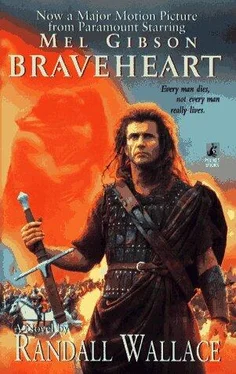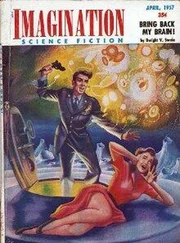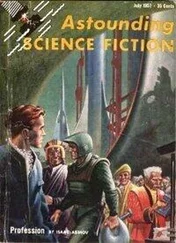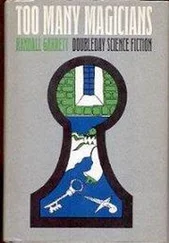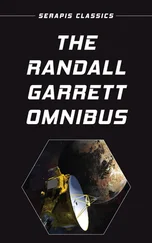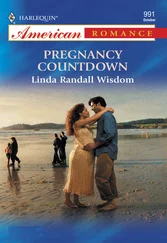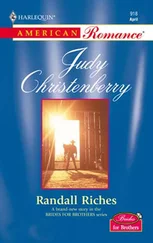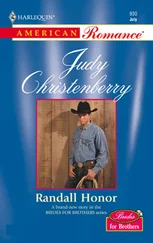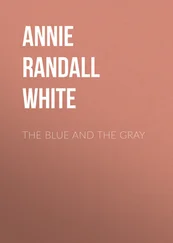To William Wallace, Murron was a revelation, a gift of God. His family, his friends, Scotland itself, all were blessings. And all had been taken away. For what? He did not know, and as long as he breathed, he would not know.
But maybe the pain had a purpose, and the loss of everything was meant to drive him here, where he could ask the pope to intervene on behalf of Scotland. The pope had the power; he could declare that he innocents of Scotland were under his protection; he could decree that he would evaluate all claims to the Scottish throne and would make a judgment himself as to who should sit upon it and could forbid Longshanks to meddle; he could enforce his decisions with the threat of excommunication, and maybe the whole problem could be settled with no more blood, no more killing.
That was the prayer of William Wallace’s heart in the Vatican that day. What happened to him didn’t matter; it never had mattered. If he had to be punished in this life or the next for fighting to be free, he would accept it. What ever the pope wanted to do to him for the battles he’d fought, the cites he’d burned, it was all right; he’d even accept the consequence for killing Bouchard — as long as the pope would listen to his plea for Scotland.
He wished he had been a better man with a heart less full of fire. But God had given him that heart and had brought him here to pray it and to speak it.
A voice behind him said, “His Holiness will see you now.”
William Wallace’s lips whispered, “Amen.”
The priest brought him into a large room and told him to kneel upon the cushions there. Wallace did as they instructed. The room was hung with tapestries and lit with candle; the air was thick with the scent of the hot tallow, but Wallace noticed no more details. The pope entered; was standing before his visitor with his hand outstretched almost before Wallace knew he was there. Wallace pressed his lips against the ring nestled in the soft flesh of the pope’s plump fingers and then, for the first time looked up at the pontiff’s face.
It was a round face atop a rounded body, make to look even more corpulent by the pure white vestments. The pope appeared tired, or perhaps it was impatient. Even has he was allowing his hand to be kissed, he had tiled his head toward the priest-counselor at this side, who held the letters King Philip had sent and was whispering rapidly into the pontiff’s ear. The pope left his hand hanging before Wallace as he listened, then, the whispering concluded, he made the sigh of the cross above Wallace’s head.
As the pope’s languid eyes full upon him, Wallace said with reverence, “Holy Father, thank you for receiving me.”
The pope nodded quickly.
“I have come to ask—”
“Your father knows all you needs before you ask him,” The pope broke in. Wallace, taught at Uncle Argyle’s knee, recognized the words of Jesus from the gospels. The words in the New Testament referred to the Father in heaven; the words from the pope clearly meant the father in the Vatican, the one with the advisors and the letters from the king. “Your sins are forgiven you,” the pope said. “Go in peace.”
He turned away and began to walk from the room.
“But — Your Holiness!”
The priests turned, shocked at their visitor’s insolence. They were more surprised still as Wallace stood “You are in the presence of His Holiness! One of them reminded the Scott.
Wallace lowered his head. “I mean every respect, every obedience. But it was not my sins — not mine alone –that I came to remove. It was those against my country.”
The priests glared at him, and one of them turned again to the door, most likely to fetch the guards, but he pope raised his hand and stopped him.
“I wrote you,” Wallace said. “When I was Scotland’s guardian, I wrote. I begged for help. I am no longer the guardian, but I beg again.” Everyone was staring at him, including the pontiff, and Wallace plunged on. “You could endorse our rights, you could forbid our enemies to attack us, you could — you could –“ He tied to think of all that the pope could do. “You control the knights Templar. They are warriors who are sworn to fight for justice and the protection of the innocents, and I swear to you that the children of Scotland need such champions. If you –If…
The pope was gazing at him in bewilderment. He turned as if he had not heard and walked out.
“So you were forgiven for Bouchard’s death,” said the captain of the French guards who had brought Wallace to Rome. On the trip they had become friends, for they treated Wallace not as a prisoner but as an ally. Now he was waiting for Wallace, and as he emerged from the inner chambers of the Vatican, the captain clapped the Scot on the back. “You’re free.”
Wallace lifted his head and stared at the Frenchman. He could not yet have been told what happened inside; he must have known all along that the letters contained the request that Wallace be pardoned. But hat was the only request made and the only petition the pope was willing to consider. “You knew,” Wallace said. “All this time on the trail, when I hoped and planned and dreamed of finding help here, you know I would find none.”
“My mission,” the captain said, “was like the letter, conducted with the secrecy of the confessional. “And now I am to take you home.”
“Home?”
“To France. We will release you before we reach Paris, and you will be free to go wherever you wish. I am also to provide you with money, as I did on the journey here, so that you will not be without comfort wherever you wish to go.”
“Is that another gift of your king?”
“Don’t be bitter toward our king, my friend. He arranged for you to be free.”
“But he knew all along the pope would not help me.”
“Perhaps. The pope is elected by cardinals. The cardinals are controlled by kings, who war against each other, and –”
“Stop. I don’t want to hear any more explanations.”
The French captain nodded. “I have no antidote for your disappointment,” he said. He led Wallace out to where the other guards held their horses, already packed for the trip back to France. But as they stepped into their saddles, he said quietly, so that only Wallace could hear, “Well, perhaps just one. The instructions for your care on this journey came not from a king….. but from a princess.”
And saying nothing more, the captain turned his horse and led his company back the way they had come.
WITHIN HIS NEW CASTLE OVERLOOKING THE RICH LANDS HE NOW CONTROLLED, AT THE EDGE OF A BEAUTIFUL LOCK TEEMING WITH FISH, surrounded by towering mountains dusted with snow, Mornay lay in what for him now masqueraded as sleep. It had been years since he had passed a night in peaceful slumber. He was now lord of everything as far as he could see; he had directed that an opulent bedchamber be constructed in his new castle, and he had fashioned it for comfort. But even the great fireplace had been unable to drive the chill from his bones, and the tapestries and floor coverings, instead of providing the feeling of soft embrace he so desired, seemed to heighten his sense of being cramped and smothered.
He blamed these unpleasant sensations on many things. His builders had erected a drafty structure—let them deny to their graves, but they were at fault. His cooks were preparing the food in such a way that it sapped his strength — though they had grown fat, eating what he found untasteful. He suspected his friends, his physician, even his priest, of plotting against him.
He had always been a suspicious man, but he had slept well—until that day at Falkirk, when he had led his cavalry off the battlefield leaving Wallace and his Highlanders to their fate. But Mornay refused to account for his sleeplessness in this way. “No!” he insisted, sometimes saying the word out loud when he was all alone or moaning it as he rolled about his bed as he did right now—he was not troubled by what he had one. Nor did it worry him that Wallace had never been caught. He had not been caught because he was dead, his body lost forever in some god-forsaken forest where he had dropped in starvation never to rise again or down some isolated gorge where he had fallen, breaking his stubborn skull, or out upon some moor where the birds had stripped the flesh from his bones. The phantom brands of marauders who raided the borderlands in the years since Falkirk were but lawless Highlanders, doing what the Highlanders always had done; they were not led by William Wallace, as the village wags all liked to say. “No!” Mornay was not afraid to Wallace. He was gone, never to return.
Читать дальше
